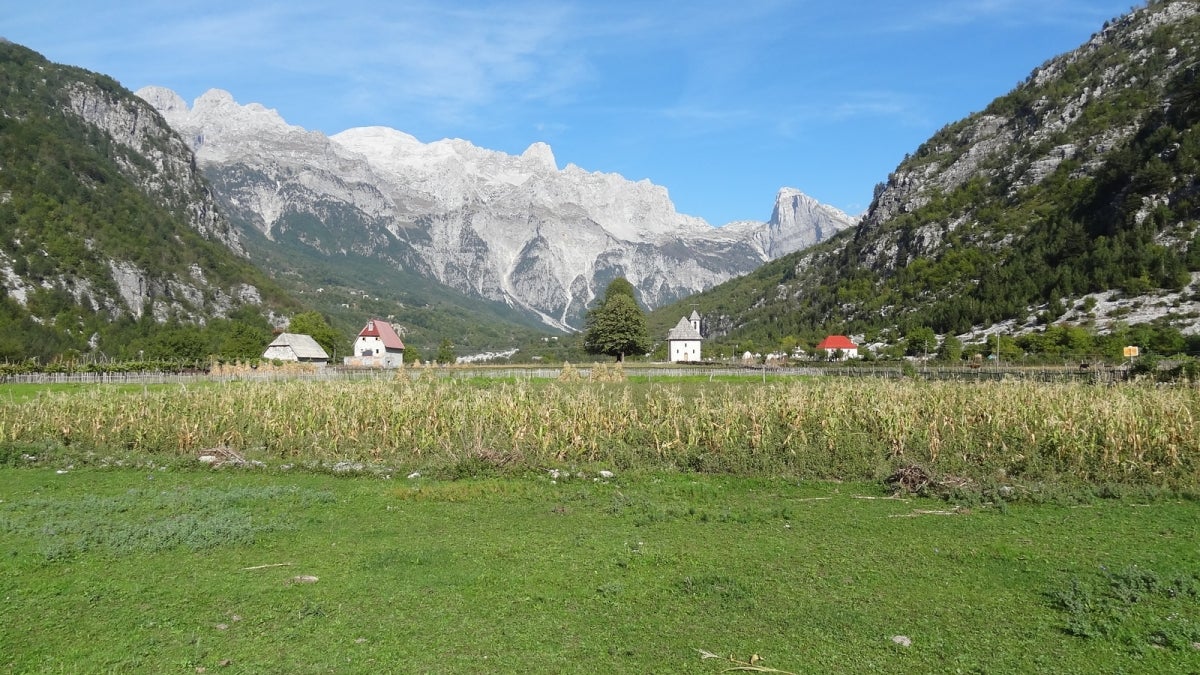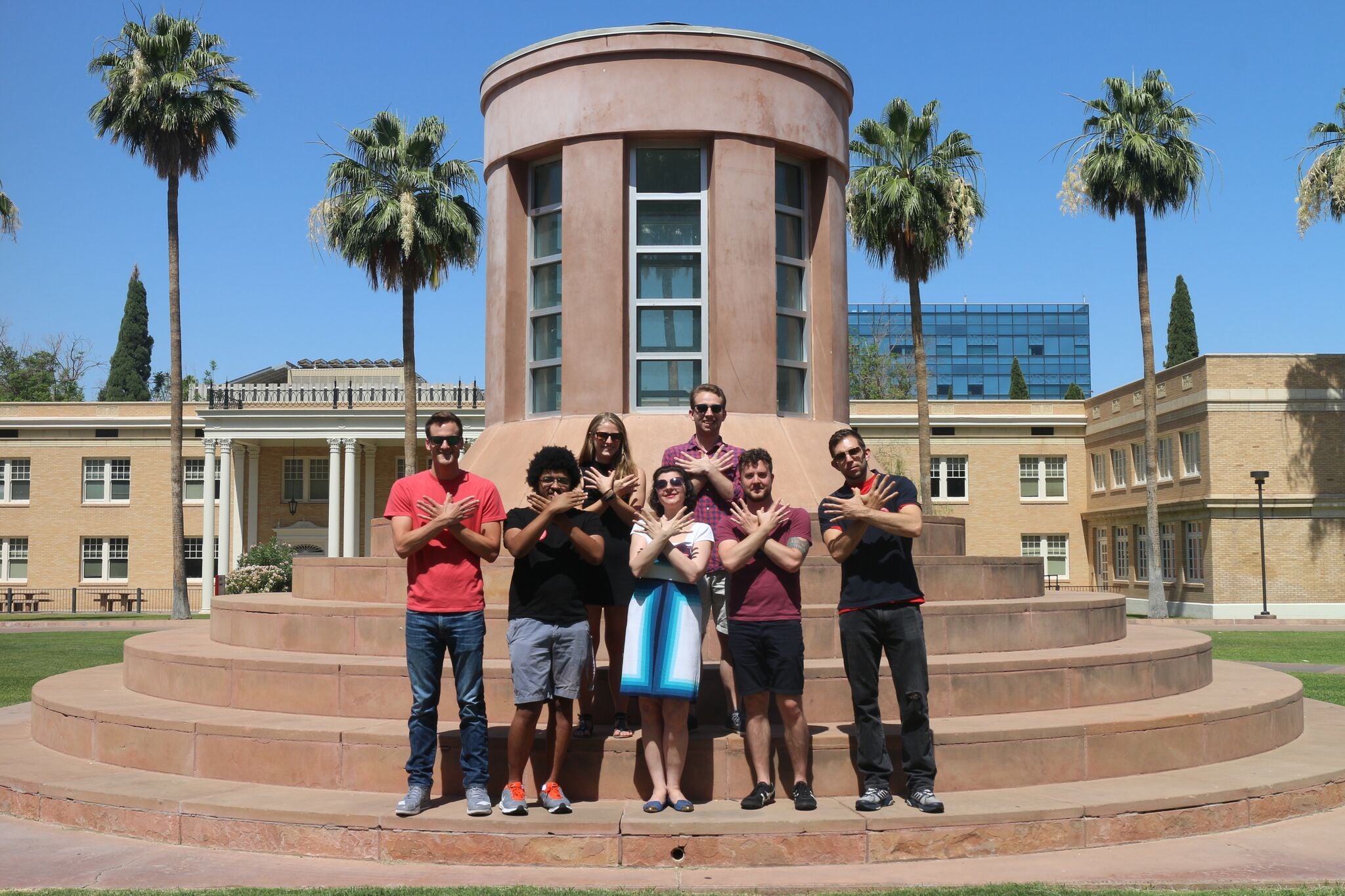ASU is teaching the uncommon languages needed for diplomacy, security, business

About 5 million people in the world speak Albanian, making it one of the less common languages. It’s not even in the top 100The most commonly spoken language is Mandarin, with 955 million speakers..
But with the fall of communism in 1991 and the strategic location of the Balkan states, Albanian has become a language of crucial importance in the world.
This summer, the Critical Languages Institute at Arizona State University is marking 15 years of teaching Albanian — one of the only immersive programs for that language in the United States.
“Now that Albania is more open to the world, it’s important to have students learn Albanian language and culture,” said Linda MenikuShe spends two months at ASU every summer and is a lecturer at the University of Tirana the rest of the year. Meniku wrote the textbooks used by the students., the instructor who launched the program in 2002.
Typically, there is a handful of students in each session. In 15 years, 127 people have learned Albanian at the institute on ASU’s campus. Some want to speak Albanian for careers in international business, law or diplomacy, but Meniku has also had students who wanted to learn it so they could study archeology or mythology in Albania. One student became interested after working with Kosovar refugee families in Phoenix, and this summer, one student is learning it so she can converse with her boyfriend’s family.
Students in this summer's Critical Languages Institute's Albanian program make the Albanian "eagle" symbol with their hands. From left, they are Joe Casavecchia, Tyler Moore, Emily Barnes, instructor Linda Meniku, Aleksej Demjanski, Chris Kinley and Travis Nielsen.
Albania, a bit smaller than South Carolina, lies about 45 miles across the Adriatic Sea from the heel of Italy’s boot. Occupied during World War II and then isolated and ruled by a brutal communist dictator until 1991, the country now is a member of NATO. Tourism is booming, with the dramatic Albanian coastline named one of the “52 Places to Go” by the New York Times in 2014.
Albanian also is the language of Kosovo, a country still recovering from ethnic wars in the 1990s with Serbia, and it is spoken in Macedonia, Italy and Greece.
The U.S. government has designated Albanian as a critical language with proficient speakers in high demand, according to Kathleen Evans-Romaine, director of the Critical Languages InstituteCurrently, the CLI offers programs in Albanian, Armenian, Bosnian, Croatian, Hebrew, Indonesian, Persian, Polish, Russian, Serbian, Turkish and Uzbek., part of the Melikian Center for Russian, Eurasian and East European Studies.
“Typically you have heritage speakers, who are the children of refugees or immigrants. The difficulty is that there are sometimes restrictions in working with the government if you are a heritage speaker, because they might not be able to get certain kinds of clearance,” she said.
“If you’re going to be working on legal reform in Kosovo, you need to speak Albanian at a very high level,” she said.
The institute’s programs are tuition-free, funded by federal agencies, sponsors and donors. The federal Title 8 program pays for language instruction for graduate students, such as Joe Casavecchia, who graduated from ASU in May with degrees in political science and American history. In the fall, he’ll enter the University of Chicago Law School.
“I’ll be studying international trade and economic development from a domestic perspective, but you always need to have an international background and to keep your options open,” he said.
“If you find your international niche and they need someone who speaks Albanian, then there you are.”
Albanian is considered a “category 2” language — more difficult to learn than French and Spanish but not as hard as Mandarin and Persian.
Chris Kinley, a doctoral student in modern Balkan history at Ohio State University, is studying border villages between Greece and Albania and is learning the language at ASU this summer for his research.
“This is my sixth language, and I think it’s the hardest one to learn. I love the Albanian language, but there are some really intense grammar rules,” he said.
First-year Albanian is taught in a seven-week program on ASU’s Tempe campus with an optional four-week immersion trip to Tirana, Albania’s capital, where students stay with host families. Second-year Albanian is taught in eight weeks in Tirana.
“Visiting Tirana is a very deep and strong cultural experience, and they see a lot of historical sites,” Meniku said. The country has been open to outsiders for only about 25 years, and the students visit an old Cold War bunker that’s now a museum.
“Every year I have students who change their lives by taking Albanian.”
Indeed, one of Meniku’s former students became so passionate that she funded a scholarship for the study of Albanian. Elaine Berkowitz, a dentist in Pittsburgh, was deployed to Camp Bondsteel in post-war Kosovo with the U.S. Army Reserves in 2007, 2010 and 2011, where she volunteered her time lecturing in a dental school and teaching brushing and flossing to children. She found the Kosovars to be kind and appreciative. After she retired from the Army in 2012, she searched for a program to learn the language.
“Lo and behold, ASU was the one,” said Berkowitz, who was 68 when she took first-year Albanian in 2013. “It was tough! But I thought the program and Linda were terrific.”
Since then, she has returned to Kosovo and Albania several times. In 2015, she established the scholarship to make it easier for students at the Critical Languages Institute.
“This is a poor country, but the Albanian Muslims are the greatest people,” she said. “They extend hospitality like you wouldn't believe.”
The Critical Languages Institute’s Albanian program will celebrate its 15th anniversary at a gathering at 7 p.m. Monday at the Adelphi Commons on the Tempe campus, with ethnic food, music and dancing. For more details, contact the institute at 480-965-4188.
More Local, national and global affairs

Overdose crisis involves more than opioids, says ASU social work professor
News coverage about the escalating number of drug overdoses in the United States can lead many to conclude that so long as you’re not overdosing yourself, the crisis doesn’t really affect you.Wrong,…

What’s next for unions? ASU center investigates evolving strategies in new report
Port workers hanging up their hats on the East Coast. Starbucks employees putting down their aprons before Christmas. Ski patrollers signing off in Park City as fresh powder piles up. The past year…

Protecting national security in a rapidly changing world
As the 21st century dawned, the challenges facing our nation and the world — such as cyberthreats, resource scarcity and space security — became too big to solve with traditional research methods.…
